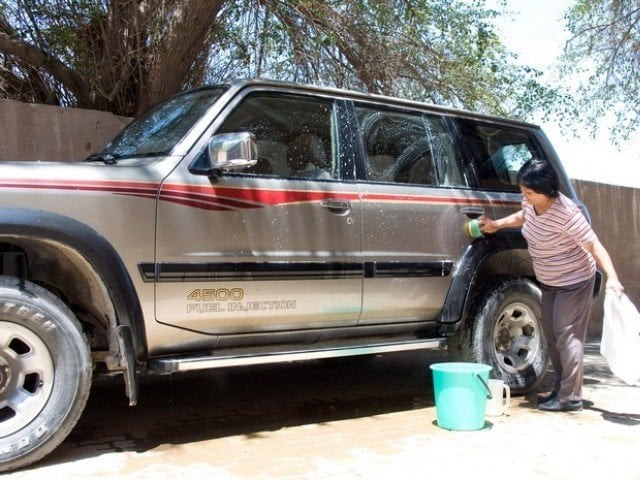Kuwait parliament approves first law for maids
New law grants the 600,000 domestic helpers 12-hour working day, a day off once a week, and 30 days' annual leave

A domestic worker washes a car in front of her employers' house in Kuwait. PHOTO: REUTERS
As in neighbouring countries, domestic helpers in Kuwait are excluded under the labour law that covers workers in the private sector and are instead tied to labour contracts only.
The new law grants the 600,000 domestic helpers in Kuwait - most of them Asian women - a 12-hour working day, a day off once a week, and 30 days' annual leave.
It also obliges employers to open a bank account for maids and transfer their wages to the account to resolve the problem of delays or non-payment of salaries.
Under the law, which takes effect after publication in the official gazette, maids who agree to work extra hours must be paid overtime.
Read: Gulf countries agree to new contract for domestic workers ahead of Asia meet
Kuwait and other Gulf countries, where at least 2.4 million domestic helpers work, have repeatedly come under strong criticism by international rights groups for alleged maltreatment of foreign workers, particularly domestic helpers.
Labour ministers from the Gulf and 12 Asian countries that send workers to the region agreed in November to have a common contract for domestic helpers granting them basic rights.
Kuwaiti MPs also passed a second law for the establishment of shareholding companies for the recruitment of domestic helpers in a bid to cut the cost for citizens and resolve problems associated with private recruitment offices.
The companies are banned from taking any fee from the maids and are obliged to provide them with training before joining work.



















COMMENTS
Comments are moderated and generally will be posted if they are on-topic and not abusive.
For more information, please see our Comments FAQ